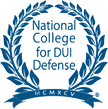Accused of Stealing in WA? Our Theft Defense Attorneys Can Help.
Theft is considered a crime of dishonesty. Being labeled a thief can cause a lot of damage, leading employers, schools, landlords, and families to view you with suspicion and mistrust. Arrests for property offenses like theft carry serious consequences, including jail, hefty fines, and the enduring stigma of a criminal record. However, you should not feel hopeless if you are facing a theft charge. With a robust, personalized defense strategy from an experienced theft lawyer, you can secure a favorable resolution and confidently move on with your life.
From dismissals to reducing penalties and keeping your record clear of theft charges, contact Emerald City Law Group for an unmatched defense.
Based in Seattle, We Assist People Across Washington and Offer Virtual Consultations. Initial Consults are Free, Confidential, and We’re Available 24/7 to Answer Your Questions.
Washington Theft Crimes
Theft in Seattle and the greater Washington area is a big concern. It encompasses a wide range of activities involving the unauthorized taking or possession of someone else’s property. These offenses are usually categorized based on the value of the items involved, the nature of the theft, and other specific circumstances surrounding the incident.
Theft Offenses
- Theft in the 1st Degree
- Theft in the 2nd Degree
- Theft in the 3rd Degree
- Theft of a Firearm
- Shoplifting
- Possession of Stolen Property
- Trafficking in Stolen Property
- Identify Theft
- Robbery
- Burglary
- Fraud
- Embezzlement
- Auto Theft
Washington Theft Laws – What You Need to Know
Being arrested for any theft crime is upsetting and stressful. It’s hard to know what to do or expect if you’re accused of stealing. But by understanding the law and the legal process, you’ll be better positioned to defend yourself and set the record straight.
Offenses related to theft in Washington refer to the unlawful acquisition of another’s money, belongings, or services. According to the RCW 9A.56.020, theft is a property crime that can take many forms, including
- Illegally obtaining or exerting unauthorized influence over someone’s property or services, intending to deprive them of it permanently.
- Employing deceit to gain control of another’s assets or services, intending to permanently deprive them of it.
- Claiming ownership of misplaced or misdelivered property or services belonging to someone else, intending to permanently deprive them of it.
Degrees of Theft in WA
Washington categorizes theft into different degrees, each representing a distinct level of offense with specific maximum penalties:
Theft in the First Degree
Theft in the First Degree falls under (RCW 9A.56.030). It includes stealing property (excluding firearms) or services valued over $5,000, , taking any property directly from a person regardless of its value, stealing a search and rescue dog during active duty, or taking commercial, non-ferrous, or private metal property resulting in damages exceeding $5,000.
Theft in the Second Degree
Theft in the Second Degree (RCW 9A.56.040) refers to stealing property (excluding firearms or vehicles) or services valued between $750 and $5,000, taking a public record, legally filed document, or an access device, as well as stealing commercial, non-ferrous, or private metal property resulting in damages ranging from $750 to $5,000.
Theft in the Third Degree
Theft in the Third Degree ( RCW 9A.56.050) is a common charge when a person is accused of shoplifting. It includes stealing property or services valued under $750 or taking ten or more merchandise pallets, beverage crates, or a combination of both.
Firearm & Vehicle Theft
Firearm and vehicle theft are distinctly addressed under Washington law and may result in severe repercussions. Per RCW 9A.56.300, stealing a firearm of any value constitutes felony theft. Similarly, vehicle theft is a Class B felony, regardless of the vehicle’s worth, according to RCW 9A.56.065.
Washington Theft Penalties
Washington state takes theft offenses seriously, imposing a range of penalties if convicted based on the severity of the crime. The value of the stolen property or services plays a crucial role in determining the level of a theft charge and the corresponding repercussions. However, other factors, such as the type of property stolen and whether violence was involved, also contribute.
Theft crimes are classified into three main degrees, each with its own set of potential penalties. Understanding these distinctions is vital for anyone navigating the legal landscape after being arrested for theft in Washington.
Theft in the First-Degree Penalties
Classified as a Class B felony, this is one of the most severe theft charges. Conviction can result in a lengthy prison sentence of up to 10 years and substantial fines reaching as high as $50,000.
Theft in the Second-Degree Penalties
Classified as a Class C felony, the penalties, are still significant. A person convicted of Theft in the Second Degree could face up to 5 years in prison and be required to pay fines up to $10,000. This category covers a range of thefts, including property or services valued between $750 and $5,000, stealing public records, and certain types of metal.
Theft in the Third-Degree Penalties
As a gross misdemeanor, Theft in the Third Degree represents the least severe of the theft categories. Penalties can include up to 364 days in jail and fines up to $5,000. This category typically includes theft of property or services valued under $750.
Negative Effects of a Theft Conviction
Beyond the immediate penalties like jail and fines, having a theft conviction on your record can disrupt virtually every aspect of your life.
A conviction for stealing can result in:
- Problems pursuing or continuing education
- Employment struggles or job loss
- Complications or denials in acquiring professional licenses
- Reduced child custody or visitation rights
- Immigration status concerns and potential deportation
- Travel restrictions
- Loss of firearm rights for felony convictions
- Loss of security clearance
Arrested for Theft in King County –What to Expect
When arrested for theft, you may be booked into the local jail, photographed, fingerprinted, and processed. Depending on the circumstances, you might be released if the police believe you are no longer a danger to yourself or others. But sometimes, bail might be required to secure your release in a theft case.
Following your arrest, you must attend an arraignment in one of the Seattle, Redmond, or Kent courthouses. Here, you’ll learn of the official charges and enter a plea.
After the arraignment, your theft defense attorney will review the police report, consult with you, commence negotiations with the prosecutor, and file any appropriate legal motions. If no resolution is reached, the case may proceed to trial.
Work with a Local Theft Crime Defense Lawyer
Having an experienced lawyer for theft charges is vital. They can review your case, identify its weaknesses, and develop a tailored defense. Strategies might involve challenging the validity of the evidence presented, questioning the circumstances surrounding the alleged theft, or exploring alternative resolutions such as paying restitution or performing community service hours. We always aim for the most favorable outcome.
Defending Against Theft Charges
Facing theft charges in Washington is undoubtedly scary, but it doesn’t necessarily mean a guaranteed conviction. A skilled theft crime defense attorney can implement various strategies to challenge the charges or potentially have them dismissed. Strategies could include proving mistaken identity, establishing the property owner’s consent, or challenging the sufficiency of the prosecution’s evidence.
It’s crucial to consult with an experienced lawyer to explore all available options, as they can provide the dedicated attention that your case demands.
Theft Diversion Programs in WA
Depending on the jurisdiction, Washington sometimes offers theft diversion and pretrial programs that can result in the dismissal of various theft charges upon successful completion. These programs are typically available to first-time offenders who have committed relatively minor theft offenses and vary by county. The programs usually involve a community service requirement, restitution or victim impact discussion, theft diversion education courses, counseling, and probation.
To qualify for these programs, candidates must typically be first-time offenders charged with minor theft offenses, have a clean criminal history, and be willing to fulfill all program requirements. Engaging an experienced criminal defense attorney is crucial, as they can evaluate your eligibility, guide you through the program’s intricacies, and work diligently towards achieving a dismissal of your charges. Failure to complete the conditions of the program results in sentencing based on the initial charge.
Washington Theft Charges: Info & Resources
Our theft crime attorneys are here to help you effectively handle allegations and protect your rights. We hope you find this information helpful. If you have additional questions, don’t hesitate to reach out. If you’re charged with theft, contact Emerald City Law Group immediately.
What if My Theft Charges Stem from Drug Addiction?
If you stole to support an addiction, this information could potentially be considered in your case. If you are willing to seek treatment and demonstrate a commitment to addressing your addiction, your defense attorney might be able to negotiate a favorable result based on compliance with a treatment program. It’s important to note that this does not automatically excuse or justify the theft. Legal consequences are still possible. A lot will depend on your attorney’s ability to navigate your situation and advocate for your best interests.
Can Washington Theft Charges be Reduced or Dismissed?
Yes, theft charges in Washington can be reduced or dismissed with proper legal representation. If you are a first-time offender or committed a minor theft offense, you might be eligible for diversion or pretrial programs, which can lead to the charges being dismissed.
A lawyer with considerable experience in theft cases can also negotiate a reduction of the charges or argue for dismissal based on insufficient evidence or procedural errors. Additionally, if restitution is made to the victim, it could also positively influence the case outcome. However, the possibility of charge reduction or dismissal depends on your case’s details and your legal representation’s effectiveness.
Can Theft Be Expunged in Washington?
Under certain conditions and after a specific period, you may be eligible to have a theft conviction expunged from your record in Washington. This can help mitigate a conviction’s long-term impact on your life. However, not all convictions qualify, and specific criteria must be met. A defense attorney can guide you through the expungement process and better assess your eligibility.
Don’t Handle Theft Charges Alone. Call Today
When you contact the attorneys at Emerald City Law Group, we will immediately jump into action. We will evaluate the evidence against you and identify the strengths and weaknesses of your case. We’ll poke holes in the case against you and fight to keep your record clean. If you cannot call us immediately, contact a friend or family member to call Emerald City Law Group. We will help them understand the process and get you released.
Emerald City Law Group Will:
- Listen to your story and investigate your case thoroughly.
- Discuss your options honestly and clearly.
- Challenge weak evidence and aggressively advocate for you.
- Keep you informed throughout your case.
- Work diligently to ensure the best possible result for you.
Theft Defense Lawyers Serving Washington – Free Consults 24/7
Emerald City Law Group provides Seattle and the greater Washington area with top-notch legal representation for those facing all levels of theft crimes.
Seattle – Local Areas Served
- King County – Bellevue, Auburn, Kent, Renton, Federal Way, Kirkland, Redmond, Bothell, Carnation, Duvall, Issaquah, Maple Valley, Mercer Island, Sammamish, Seattle, & Woodinville
- Snohomish County – Everett, Lynnwood, and Marysville.
- Pierce County – Tacoma, Puyallup, Gig Harbor, and Lakewood
- Grays Harbor
- Kittitas County
- Spokane County
- Cowlitz County
- Douglas County
- Mason County
- Skagit County
- Thurston County
- Island County
- Mason County
- Grays County
- Kitsap County
- Lewis County
- Whatcom County
- Whitman County
- San Juan County






